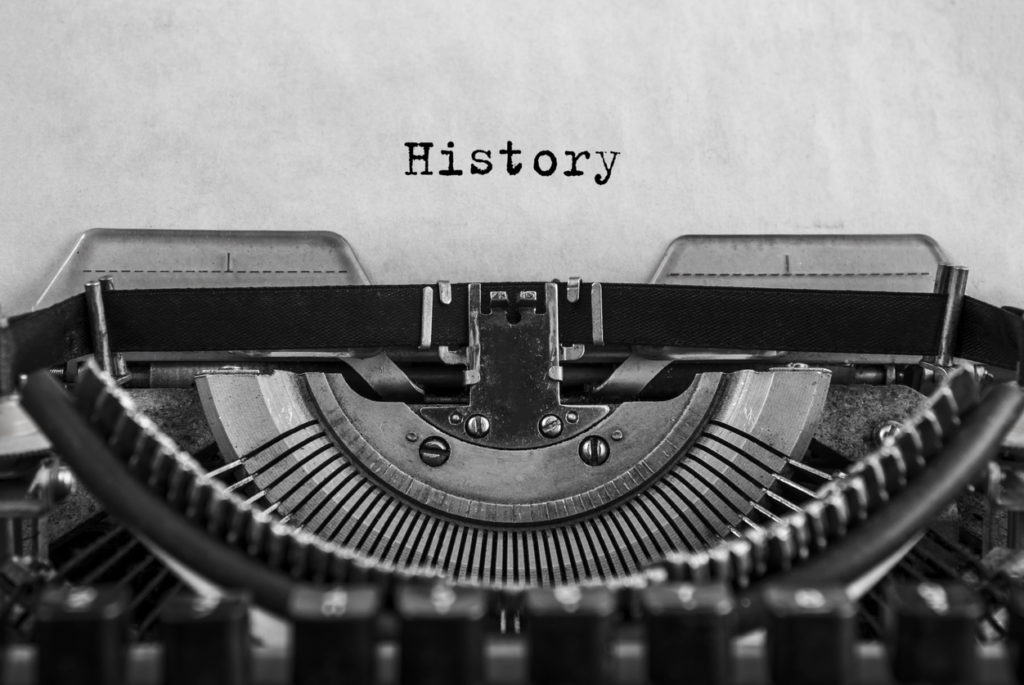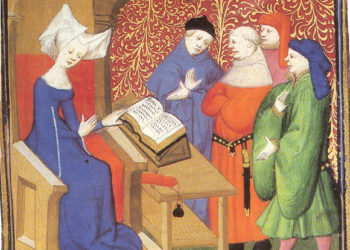There are so many contexts in which history is impossible. Some are systemic. Subtle or explicit forces make histories impossible by disallowing them as we are seeing with legislation in the United States aimed at teaching histories of race and other subjects. Sometimes our collective cultural or professional limitations keep us from even conceiving some historical subjects in the first place.
Either way, history is connected to power. While it’s convenient to say that people are bored by history, those in power or seeking power have always understood its importance and utility. It’s why history is so crucial. As the Haitian scholar Michel-Rolph Trouillot wrote, “history is the fruit of power, but power itself is never so transparent that its analysis becomes superfluous. The ultimate mark of power may be its invisibility; the ultimate challenge, the exposition of its roots.”
But this series explores how acute crisis — often in addition to the cumulative, snowballing effect of cultural factors — such as war or environmental disaster has made or will make some histories unreachable — or unwritable. Each of the three posts in the series will ask the same five basic questions to two scholars; usually (but not today) it will include a scholar working from the country in question, whether within a library or archive or in an academic or other research post.
It starts close to home for me, with an interview with two scholars of Russia and eastern Europe at Brown University. Alexandra Morehead (AM) is a PhD candidate in the History Department at Brown. Ethan Pollock (EP) is Professor of History and Chair of the History Department at Brown. I’m so grateful to them for this conversation (via Google doc and email!).
This is a difficult history to write about in any context, and especially right now. As Ethan said to me, it’s painful to write our work “while the Russian State overwhelms Ukraine with so much death and destruction. I hope the audience understands that while we are “analyzing” the situation in our written responses, the emotions are quite raw.” For those who wish to read more, H-Ukraine features histories of Ukraine, including historians reflecting on the war in Ukraine, and resources for scholars.

Please describe your own current research interests.
AM: My research examines the wartime experience of the forest during World War II. Although several scholars have examined experiences of Jewish survival in the forests during the Holocaust, fewer have unearthed its deeper roots. My research traces the ecological origins of ethnic cleansing and genocide in the East European forest and examines how different groups (i.e., Jews, Slavic peasants, Nazi soldiers, and Soviet partisans) differently marshaled the environment to their advantage in contests of power for survival.
EP: I am currently interested in US-Soviet cultural exchanges during the Cold War. We know that ideological differences defined the conflict. Yet both sides could agree (reach a consensus if you will) that certain spheres of cultural life served as proxy measures for how well each society was doing vis-a-vis the other. I’m interested in how both sides agreed that the Cold War could be contested in art, music, poetry, sports, and scholarship as well as in geopolitics and economics.
What and where are the libraries, archives, or oral histories that are/have been important for your scholarship? Could you describe your collaborations with archivists, librarians, and scholars in the place you study and elsewhere abroad?
EP: Archival and library access in Russia has been crucial to all of my work. My first book was based extensively on newly opened Communist Party and Soviet State archives in the 1990s. In many cases, I was the first scholar to look at these materials since they had first been created in the 1940s and 1950s. My archival research took well over a year. Some archivists assumed their job was to control access and shield the materials from historians. But many more were helpful. My work was made possible by the active support and professionalism of archivists in the Party Archives, the Russian State Archives, and various other smaller archives. My second book also relied on many of these same archives. But for practical reasons (I did not foresee the chance to spend a year in Russia doing archival research), I picked a topic that was less archivally focused. My topic was more grounded in published books and articles, many of which were obscure and not easily accessible. In this case, the National Library of Russia in St. Petersburg and the Russian State Library in Moscow were essential. They often held the only extant copy of books and articles that I needed to consult for my research. For my current research I worked in archives in both Russia and in the United States. I had planned on following-up on my initial research trips to Russia, but am now uncertain whether that will be possible. In all of these cases my work benefited tremendously from extensive conversations with scholars in Russia.
AM: My previous research examined the role of ethnic cleansing survivors in assembling archives in post-Communist Poland. My topic focused on one ethnic cleansing survivor group in Wroclaw and their attempts to gather evidence of the Wolyn massacres that took place during World War II. Beginning in the 1990s, the group’s leaders solicited eyewitness testimonies and photographs for their private archive. As their movement gained momentum, they began publishing material in a monthly magazine before sharing the materials with the Institute of National Remembrance (IPN). This archival material was then used by the Polish government to pass a national memory law that categorizes the Wolyn massacres as an act of Ukrainian “genocide” against Poland. My research would not have been possible without the group’s leaders and their members who generously shared their material with me. They also kindly permitted me to record and publish the oral histories of their trauma. While this project did not draw as extensively from state archives, it provides a potent example of how archives are created to serve a variety of personal, national, and geopolitical interests.
I began studying Russian and Soviet history at Brown and was looking forward to gaining experience navigating Russian-language archives. My preliminary plans involved visiting the GARF Archive in Moscow, the State Archive of Lviv in Ukraine, and the State Archives of Brest in Belarus (among others). Unfortunately, I will most likely not be able to visit these archives for my dissertation research and reorient my topic to focus on Poland instead.
How do you think your own work will be affected by the current crisis and its unknown aftermath?
AM: I am fearful of the geopolitical implications of our research as the field more closely begins to resemble Cold War scholarship. As an early-stage scholar, I am also concerned about acquiring the skills and expertise to successfully navigate Russian and former-Soviet archives. Our contemporary geopolitical circumstances will impede research for several years and may have generational consequences for how not only Russian, but East European history more broadly is imagined and dealt with.
EP: Two ways: I fear I will not be able to gather more materials in Russia and it will become increasingly difficult to collaborate with Russian scholars. For the first time in my career, I have been considering the possibility that I will not be able to go to Russia again or work in Russian archives and libraries. This reminds me, in a way, of American scholars interested in the Soviet Union in the 1940s who understood that their place of study was beyond reach for the most part.
How do you think access to materials and collaborators as well as the kinds of historical subjects scholars might be able to pursue will be affected for the foreseeable future?
EP: The geopolitical situation (the war in Ukraine and the resulting isolation of Russia) is poised to impact not only the types of questions scholars ask, but the ways in which scholars will be able to answer them. The horrendous violence and war will no doubt shift many scholars’ focus toward political and diplomatic questions. Questions of nationalities and ethnicities in Eastern Europe, which have long been a priority of scholars, will no doubt remain salient. It will be important to keep track of what happens to humanistically-centered questions. During the Cold War there was a broad push in area studies to learn as much as possible about a society from all sorts of angles. For all the problems associated with Area Studies, it clearly created a scholarly infrastructure for a broad-based approach to understanding a place.
The ways we answer scholarly questions will also change. Let me point to two ways. First, the archival and library access in Russia that has been a hallmark of the field since the 1990s will no doubt recede. Political, practical, and ethical concerns are bound to curtail foreigners’ ability to conduct research in Russia itself. Second, the close collaboration between Russian and non-Russian scholars may no longer be possible. To be sure, during the Cold War, when access to Soviet sources and colleagues was far more limited, some great scholarship was produced. But, again, the sorts of questions that could be answered and the way scholars answered them was vastly different from what became the norm in the 1990s.
AM: It is difficult to forecast how the historical discipline will bend around this conflict. I appreciate Professor Pollock’s response here and would like to emphasize two points. First, the issue of archival access is critical as scholars may be restricted from performing research in the region. Immediately this will suspend ongoing research and may cause scholars to reorient their topics. Ideally, this may also inspire innovative research that reexamines existing material with novel questions or methodological approaches.
Second, historians will have to grapple with questions of scholarly ethics. Historians are often cautioned against prognosticating or predicting how conflicts will unfold. If the geopolitical circumstances become more acute, historians may feel compelled to intervene in contemporary political disputes. While scholars may be influenced to take up questions of extreme violence in their research, I am hopeful that others will doggedly pursue humanistically-centered questions. To me, it is even more urgent that historians produce critically sympathetic narratives that domesticate, rather than affirm, disbelief. In other words, historians should also reflect on what it means to produce history during a moment of crisis and should be ethically-conscious in their historical approach (what these ethics entail is a much more difficult question)!
Why does this history matter?
AM: Among other disciplines, history is unique in its ability to inspire empathy and understanding of present-day suffering. If the conflict is driven, in part, by radical reinterpretations of Russia and Ukraine’s pasts, history will also be vital to clarifying questions about their shared history. Additionally, this history can expose continuities in the human experience of war that can bear witness to civilian suffering in other geographic and temporal contexts. While I am optimistic about the value of this history, I ultimately agree with Professor Pollock’s caution that history can be distorted in order to justify future aggression.
EP: If indeed we are entering a new period of an intensive and long term geopolitical standoff between Russia and the “West”, the imperative to understand Russia will only go up. Some will naturally focus on leadership and high politics; but a deep understanding of the culture and history is no less urgent. The war has focused our attention on history both as a discipline that can shed light on our current predicament and, unfortunately, when distorted, as a tool that can be used to justify military aggression. Sadly, the war has shown just how much history matters and how crucial it is to understand. As the Russian state plays an increasing role in defining Russian history (by disbanding organizations such as Memorial and silencing discussion on key questions, like Ukrainian identity or the kholomodor), it remains vital that scholars from outside the region engage with this history. I recall someone telling me once that the history of a religion should not be left solely to those who are believers in that religion. The same might be said about the history of a region. Multiple perspectives, from inside and from out, are the only way to create a fair debate about the past and its meanings.
Discussion
1 Thought on "Unreachable/ Unwritable Histories: Russia, Ukraine, Eastern Europe"
In the “West” there is occasional difficulty for researchers as well. Italy generally restricts archival access concerning material regarding certain atrocities committed in Africa, especially in Ethiopia after 1936. In connection with that, Italy was the first nation condemned by the UN, which it entered in 1955, for crimes against humanity (beyond war crimes), and in its schools Italian history ends around 1920, just before the inception of Fascism. My books mention this but Ian Campbell has written about it extensively.
Italy infamously banned the showing of a mainstream movie, The Lion of the Desert (1981), starring Anthony Quinn, Oliver Reed, John Gielgud and Rod Steiger, because it (accurately) depicted the Italian army committing atrocities against civilians in Libya until the Allies removed the occupiers during the Second World War in action leading up to the invasion of Sicily in 1943.
This and other things (in Italy children are still taught that an Italian invented the telephone) leave us with what are essentially two “versions” of 19th and 20th century Italian history – one here in Italy and another studied elsewhere. A similar phenomenon also occurs in several other countries I could mention.



